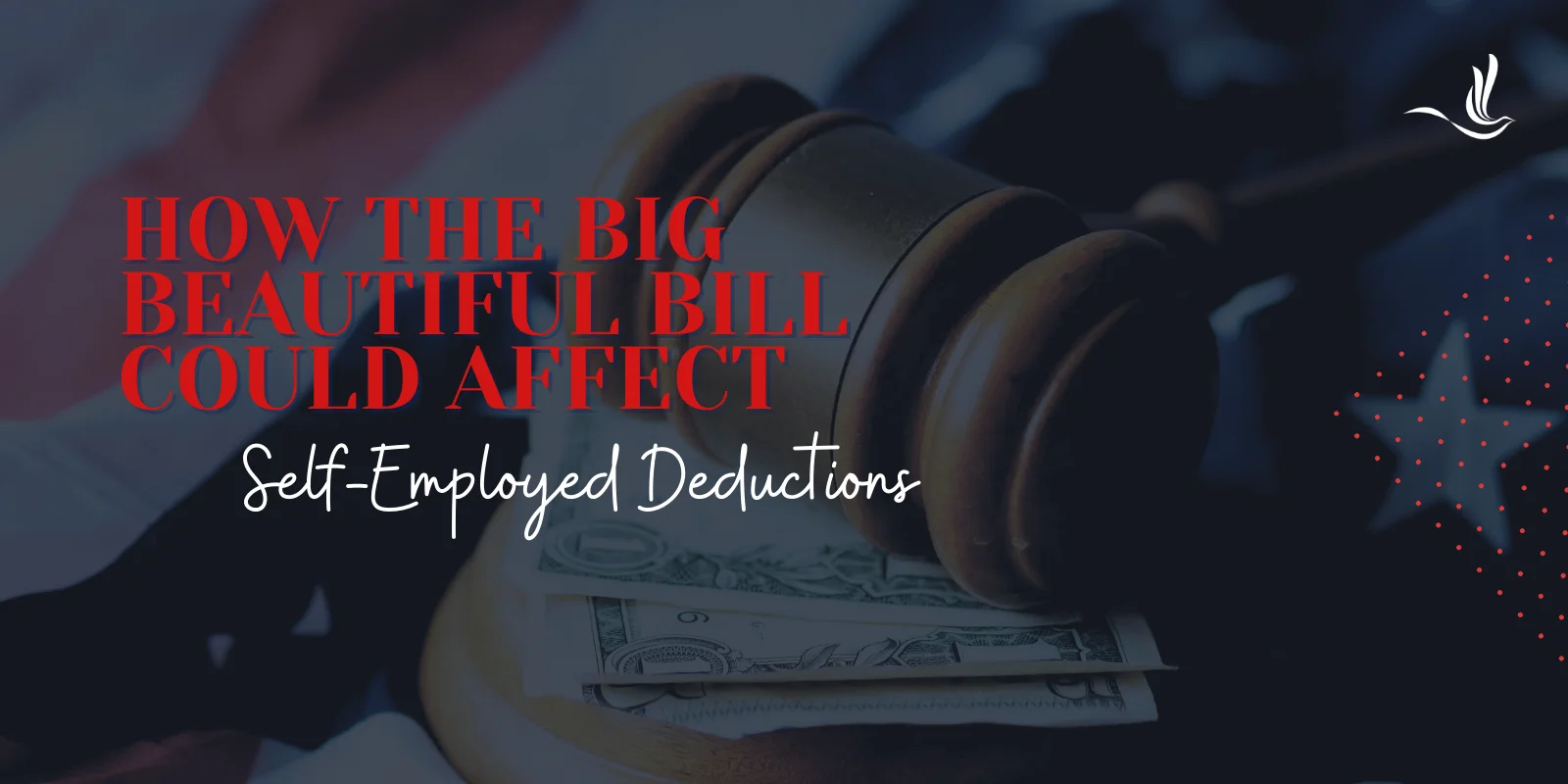If you own rental property and you’re not using these strategies, you’re likely leaving tens of thousands of dollars on the table—or worse, setting yourself up for a future tax bomb.
Let’s look at some of the most common tax strategies for real estate investors to avoid unnecessary taxes and dramatically improve their bottom line.
These are the exact techniques we use with real estate investors to reduce tax liability, increase tax deductions, and improve overall profitability on their rental properties.
And yes—you can legally wipe out your W-2 income with real estate losses if you qualify.
Let’s dive into the tax tips every rental property investor needs to know.
Key Takeaways
Mastering the fundamentals is the key to minimizing property taxes, maximizing cash flow, and boosting profits from real estate investments.
These highlights cover both core principles and advanced tax strategies for rental property owners.
They’ll help you manage operational expenses, identify deductible expenses like repairs and maintenance, and ensure you’re applying the best tax strategies for real estate investors.
Review this list or watch it here before filing your next tax return—and revisit it regularly as your portfolio expands:
Depreciation must be claimed—you’ll be taxed on it regardless
Cost segregation and bonus depreciation can unlock massive first-year tax write-offs
Real estate professional status allows passive losses to offset active income
The short-term rental loophole offers an alternative to claim losses actively
C-Corporations can reduce taxes through income shifting and deductions
1031 Exchanges allow for tax-free reinvestment in new properties
Primary residences can be sold to S-Corps to capture tax-free gains
Gifting property before death eliminates the step-up in basis advantage
Avoid holding rental properties in S- or C-Corps unless part of a deliberate plan
Let’s dive into how these advanced tax strategies work.
1. Always Take Your Depreciation
Understanding depreciation is fundamental for rental property owners.
This tax benefit recognizes the natural wear and tear on your property over time. It is a non-cash expense. It reduces your income on paper, even though it’s not money out of your pocket, and it allows you to reduce your taxable income each year.
Some investors skip depreciation because they’re afraid of “depreciation recapture” when they sell. But here’s the kicker:
The IRS makes you recapture depreciation even if you didn’t claim it.
So if you’re not taking that deduction, you’re giving away money and setting yourself up to pay tax later anyway. Take what’s available to you now and use it to reduce your taxable income.
Request a free consultation with an Anderson Advisor
At Anderson Business Advisors, we’ve helped thousands of real estate investors avoid costly mistakes and navigate the complexities of asset protection, estate planning, and tax planning. In a free 45-minute consultation, our experts will provide personalized guidance to help you protect your assets, minimize risks, and maximize your financial benefits. ($750 Value)
2. Accelerate Depreciation with Cost Segregation
Want to supercharge your tax savings? Then don’t just take depreciation—accelerate it.
This strategy is called a cost segregation study, and it lets you:
Break your property into faster-depreciating components (5, 7, or 15 years)
Use bonus depreciation to take massive write-offs in the first tax year
Create huge paper losses that offset rental income—and maybe even W-2 income
Think of it like this: why write off your carpet over 27.5 years when it only lasts 5?
Pair this with the Real Estate Professional Status (REPS), and you can use these losses to offset active income.
3. Claim Real Estate Professional Status (If You Qualify)
Real estate is considered a passive activity, so rental losses normally can’t offset your W-2 or 1099 income.
But if you or your spouse qualify as a real estate professional, those passive losses can turn into active ones—and now you can use them to reduce your tax bill on other income.
Here’s how to qualify:
More than 50% of your personal services are in real estate
You work 750+ hours per year in a real estate trade or business
You materially participate in the rental activities (you can aggregate them)
This is a massive opportunity for high-income households where one spouse doesn’t work outside the home. That non-working spouse could be the tax hero of the family.
Learn more about qualifying for the IRS’s Real Estate Professional Status in our ultimate guide.
4. Use the Short-Term Rental Loophole
Don’t qualify as a real estate professional? There’s still hope.
If you own a short-term rental (average stays of 7 days or less) and you materially participate, your losses may also count as non-passive. That means you can use them to offset W-2 income without being a real estate pro.
You qualify by:
Spending 100+ hours per year on the property
Working more than any other individual or company (yes, even cleaners)
Or spending 500+ hours total across all short-term rentals
You can even combine hours between spouses to hit the threshold. This is one of the lesser-known tax strategies for investment property owners that can help turn passive losses into active deductions.
5. Use a Property Management C-Corporation
Advanced investors often set up a separate C-Corporation to manage their properties.
Why?
It opens the door to powerful tax benefits and income-shifting strategies.
For example, you can pay your C-Corp to manage your rentals, shifting some of your income into a 21% corporate tax rate instead of your personal tax bracket.
You can also implement an accountable plan, deduct business expenses like travel or a home office, and even reimburse yourself and your family for medical costs—without triggering additional personal tax.
The key is keeping the C-Corp lean and using it as a tool to streamline deductions and minimize liability.
6. Avoid Paying Taxes When You Sell—Use a 1031 Exchange
One of the most powerful tools for long-term wealth building is the 1031 Exchange.
Instead of selling a property and paying capital gains taxes, you can defer those taxes by rolling the equity into another property.
This strategy allows you to compound your investment and grow your portfolio without losing capital to the IRS at each sale.
The rules are strict—you must identify a new property within 45 days and close within 180 days—but the benefits are well worth it.
It’s a favorite strategy among professional investors who want to keep their money working, tax-free, as long as possible.
Here’s how it works:
Sell your property
Use a qualified intermediary to hold the funds
Identify your replacement property within 45 days
Close on the new property within 180 days
You can:
Sell one property and buy several
Or sell several and buy one
Mix and match property types (residential, commercial, land)
Done correctly, you pay zero tax at sale, and your money keeps working.
7. Leverage Your Primary Residence Strategically
If you’ve lived in your home for at least two of the last five years, you may qualify for the Section 121 Exclusion, which allows married couples to exclude up to $500,000 in capital gains on the sale of a primary residence.
Now, here’s the strategy: before converting your residence into a rental, sell it to an S-Corporation you own. This lets you lock in the exclusion and reset the property’s basis for depreciation.
That means bigger write-offs once the home becomes a rental. It’s a smart way to get tax-free cash today and tax savings in the future—without leaving anything on the table.
This strategy is perfect for Californians or anyone sitting on huge appreciation.
But timing is everything. You only have three years after moving out to claim that exclusion, or you’ll lose it.
8. Don’t Gift Appreciable Property to Your Kids
Passing on real estate to your children is a great way to build generational wealth—but there’s a right way and a wrong way to do it.
The wrong way? Gifting the property while you’re still alive.
We see this mistake far too often.
Parents want to help their kids out financially, so they gift property to their children while they are still alive. This is a bad idea.
Why?
Because the kids get your original basis, not the stepped-up basis they’d get if they inherited it.
That could mean paying capital gains tax on hundreds of thousands of dollars of appreciation—needlessly.
The better route? Use a revocable living trust so they inherit it with a full step-up in basis and pay zero tax when they sell.
9. Never Hold Appreciable Real Estate in an S- or C-Corporation (Unless It’s Strategic)
S-Corps and C-Corps can be useful, but they’re not ideal for holding long-term rental properties—unless you’re following a specific strategy like the Section 121 Exclusion.
Here’s why:
Pulling property out of an S-Corp is a taxable event
Selling property inside a C-Corp can trigger double taxation
Instead, use LLCs taxed as disregarded entities or partnerships to hold real estate. That keeps you flexible and avoids tax traps if you ever refinance or restructure.
Final Thoughts
Investing in real estate offers incredible tax advantages if you know how to use them. The difference between a landlord who pays 40% in taxes and one who pays nothing comes down to strategy. We recommend consulting an experienced tax professional who understands the unique challenges of real estate investors.
So, whether you’re a first-time investor or a seasoned landlord, take action now.
Take depreciation
Accelerate it with cost segregation
Use a C-Corp for income shifting
Avoid gifting property the wrong way
Plan ahead for exits with 1031 Exchanges and living trusts
And as always, if you’re unsure what to do next, Anderson Advisors is here to help.
You can schedule a free Strategy Session with one of our advisors.
Whether you’re looking to implement advanced tax strategies for real estate investors, optimize tax deductions, or restructure your real estate investments for better protection and profitability, our team will guide you every step of the way.
Contact us today or explore our free resources to build your strategy and keep more of what you earn.


























